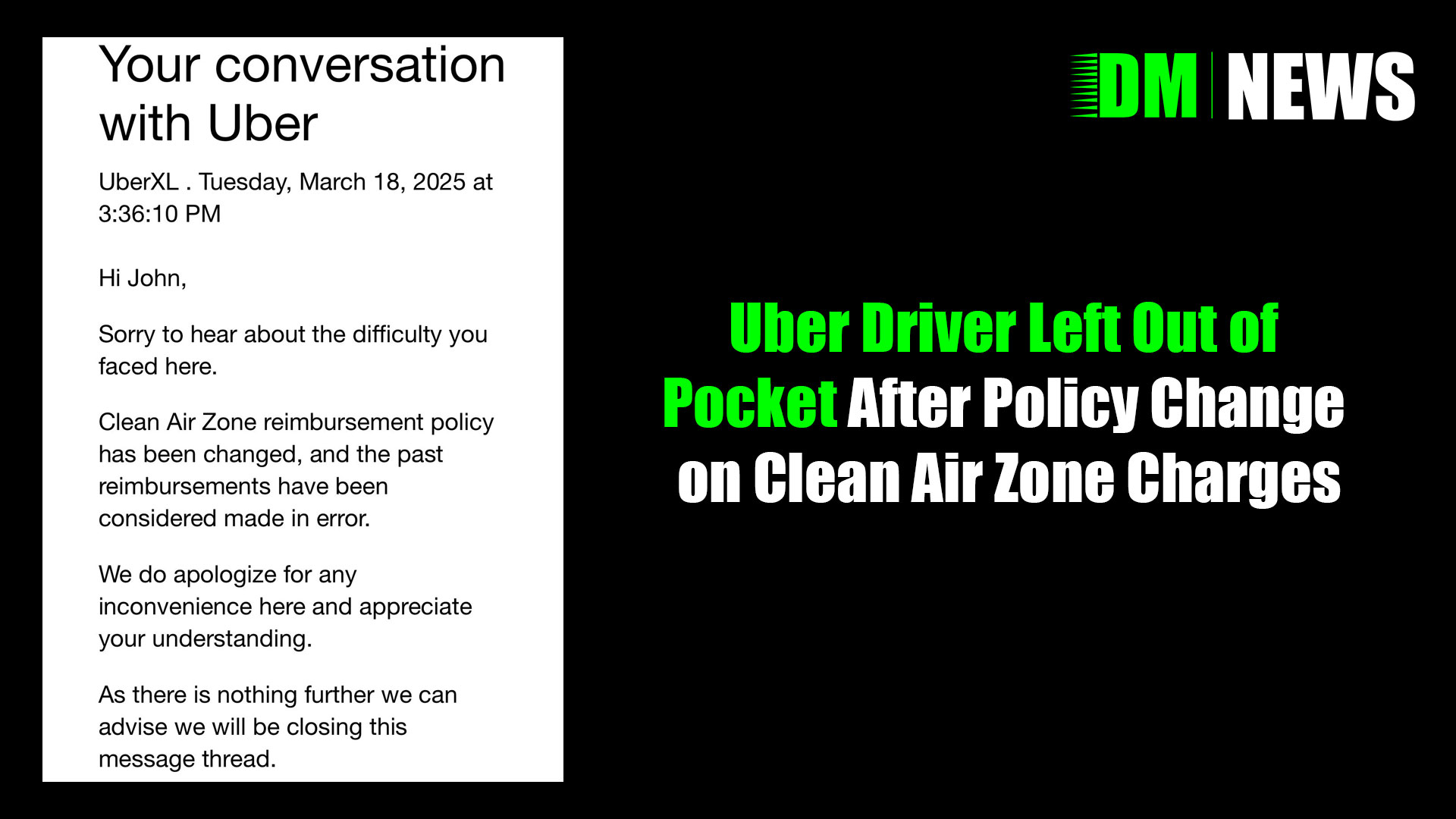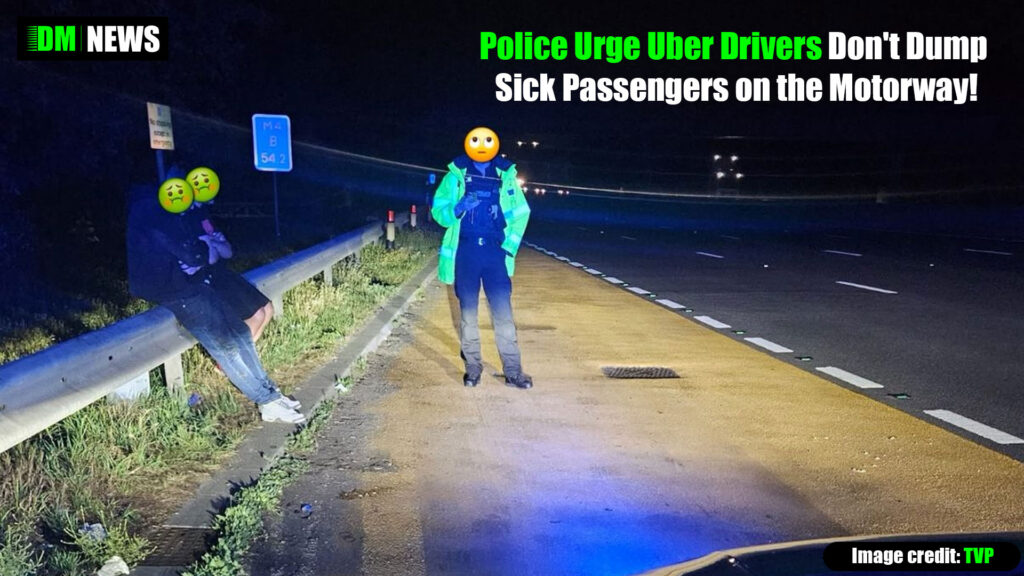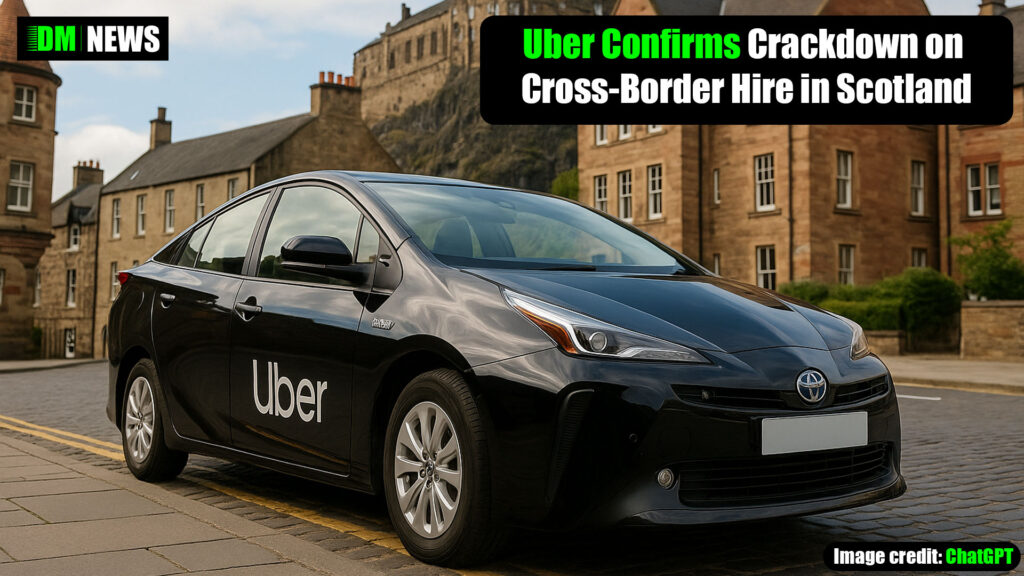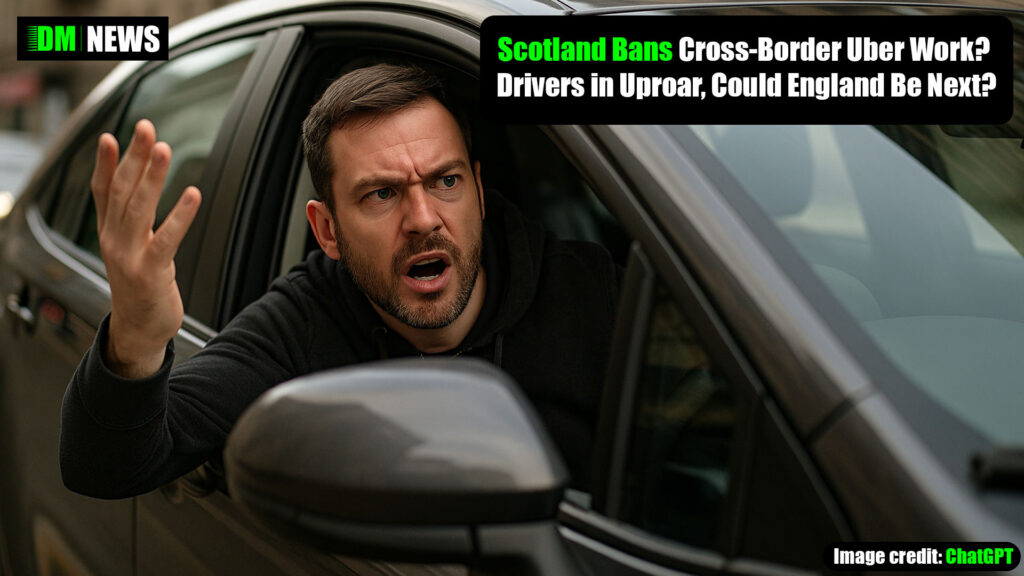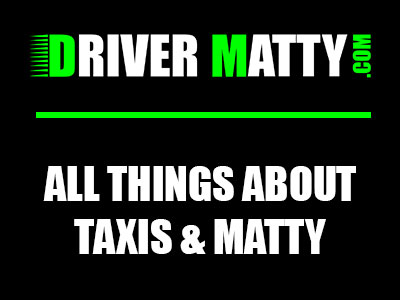A Liverpool-based Uber driver has spoken out after being denied reimbursement for a clean air zone (CAZ) charge following a recent airport run—despite receiving the same reimbursement just weeks earlier.
John, who drives a Mercedes Vito for Uber, accepted a fare from Liverpool to Leeds Bradford Airport. After dropping off the passenger, he was surprised to find that he hadn’t been reimbursed for either the airport drop-off charge or the clean air zone fee, both of which are commonly incurred by drivers operating in certain cities.
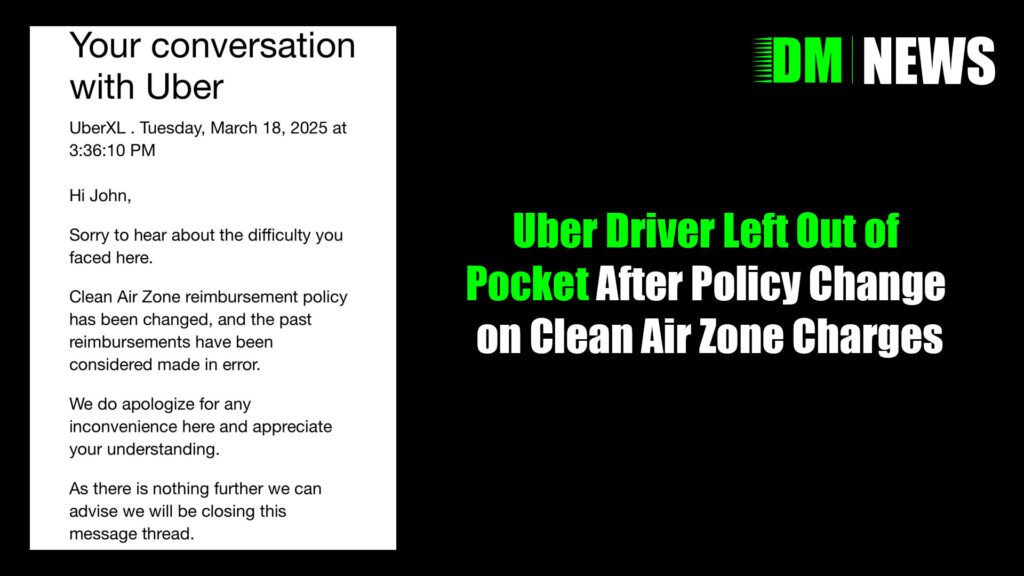
He contacted Uber Support, who eventually refunded the airport drop-off charge. But when it came to the CAZ fee, the response took him by surprise.
In a message seen by DM News, Uber told John:
“Clean Air Zone reimbursement policy has been changed, and the past reimbursements have been considered made in error. We do apologise for any inconvenience here and appreciate your understanding. As there is nothing further we can advise, we will be closing this message thread.”
John was left confused and frustrated, especially given that a similar job to Leeds Bradford Airport just the other week did result in reimbursement for both fees.
“So they refunded me before, but now they say that was an error?” he told DM News. “It’s not right. These are extra charges that we have no choice but to pay as part of doing the job. Why should drivers be footing the bill for something the passenger requested and benefits from?”
Drivers are already under pressure from rising fuel costs and vehicle maintenance, and unexpected changes like this are another blow to those trying to make a living through the platform. Many drivers argue that such fees—especially those tied to airport access and city environmental charges—should be built into the fare or automatically reimbursed.
Bradford introduced its Clean Air Zone to tackle pollution, meaning vehicles like John’s must pay to enter certain areas. But Uber’s new stance means drivers must now absorb those costs or pass them on through higher prices, which isn’t always possible within the fixed fare system.
John’s case adds to a growing number of concerns about transparency and fairness in Uber’s driver policies, particularly when it comes to reimbursements and fee structures.
Uber has not issued a public comment on the updated CAZ reimbursement policy at the time of writing.

